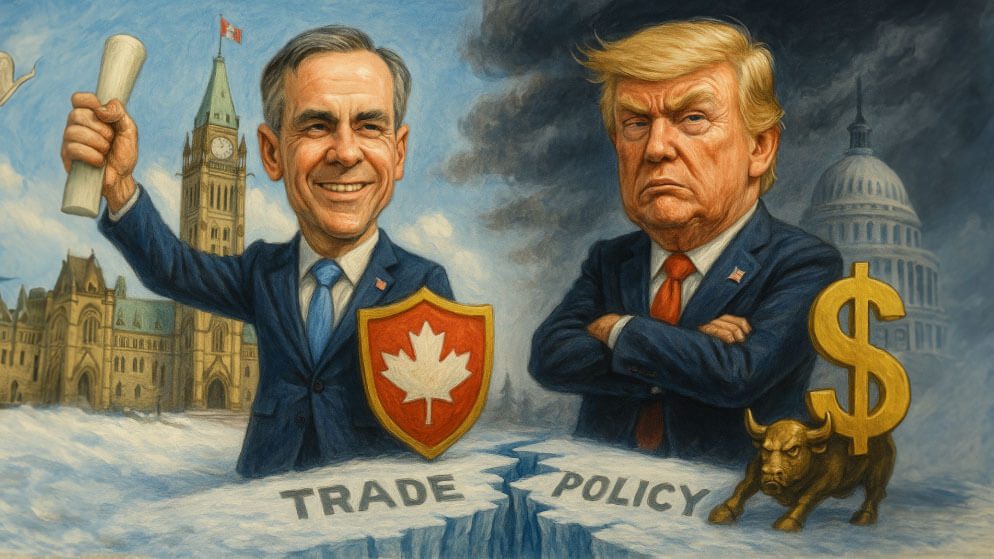In a remarkable political resurgence, Canada's Liberal Party, spearheaded by Prime Minister Mark Carney, secured a win in the federal elections held on Monday. Carney, in his victory speech, did not shy away from confronting U.S. President Donald Trump, accusing him of harboring designs to dominate Canada through economic pressure.
Addressing his supporters late at night, Carney unequivocally charged President Trump with attempting to undermine Canadian sovereignty, declaring, "President Trump is trying to break us so that America can own us." Despite the fiery rhetoric, Carney signaled his willingness to engage with Trump over what he termed "a crisis that we did not create," while committing to a formidable stance in the ongoing trade war with the United States.
"President Trump is trying to break us so that America can own us." - Mark Carney, Prime Minister of Canada
Political pundits had previously anticipated a grim outcome for the Liberals, but the tide turned sharply following Trump's controversial comments. His assertions that Canada might as well be the "51st state" and that it would falter without U.S. patronage played a pivotal role in rallying Canadian nationalism. Coupled with Carney's strategic campaign, these factors contributed to the party's surprising comeback.
As the vote count extended into the early hours, the Liberals were projected to win or were leading in 167 of 343 districts, an increase from their prior 150 seats. Meanwhile, the Conservatives, under Pierre Poilievre, were behind with leads in 145 districts.
While it remains uncertain whether the Liberals will clinch the 172 seats necessary for a majority, it is anticipated they might form a coalition with the New Democratic Party. Carney, in his address, underscored the need to diminish Canada's economic reliance on the U.S., announcing the end of their "old relationship of integration." He vowed to foster stronger ties with Europe and Asia, asserting that Canada, not the U.S., would lead the global economy if America withdrew.
Trump's interference in Canada's election, claiming he was "in fact on the ballot" and reiterating his stance on annexing Canada, had a tangible effect on Canadian voters. His remarks at an Oval Office event further inflamed sentiment when he suggested Canada would not survive without U.S. purchases.
This surge in Canadian nationalism reshaped the electoral narrative, enabling the Liberals to clinch a fourth consecutive term. Although Poilievre conceded defeat, he promised to keep the government in check.
Carney's tenure is set to be challenging as he navigates a trade conflict with the U.S., which remains Canada's chief export market. With Trump's tariff threats looming and the potential shift of auto manufacturing to the U.S., the Canadian economy faces a critical juncture. Carney's campaign promises, including utilizing revenue from counter-tariffs to support affected Canadian workers and maintaining key social programs, will be closely scrutinized as he steps into his new role.

